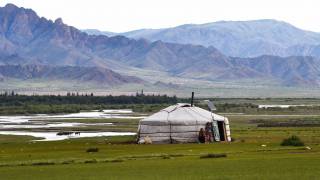Enhance Plague Vaccine Candidate Progresses in Phase 2 Study

California-based Dynavax Technologies Corporation today announced that the first participant had been dosed in a Phase 2 clinical trial evaluating the immunogenicity, safety, and tolerability of the Recombinant Plague (rF1V) vaccine candidate combined with the CpG 1018® adjuvant in adults 18 to 55 years of age.
The clinical trial assesses a two-dose regimen administered over one month.
Previous clinical studies of the rF1V, not including CpG 1018 adjuvant, have evaluated a three-dose regimen over six months.
As previously announced, Dynavax and the U.S. DOD executed an agreement providing approximately $22 million in funding over two and a half years to develop an improved recombinant plague vaccine.
Currently, the U.S. FDA has not approved an enhanced plague vaccine.
"We are proud to support the U.S. government in developing an effective adjuvanted plague vaccine that we believe will allow U.S. service members to be protected with fewer doses administered over a shorter period of time," commented Ryan Spencer, Chief Executive Officer of Dynavax, in today's press release.
The U.S. CDC says, 'Plague vaccines have been used since the late 19th century. Field experience indicates that vaccination with the plague vaccine reduces the incidence and severity of disease resulting from the bite of infected fleas.
The initial plague vaccine licensed in the USA is prepared from Y. pestis organisms grown in artificial media, inactivated with formaldehyde, and preserved in 0.5% phenol. The vaccine contains trace amounts of beef-heart extract, yeast extract, agar, peptones, and peptides of soya and casein.
Today, modern antibiotics are effective in treating the plague, says the CDC.
Without prompt treatment, the disease can cause serious illness or death.
Presently, human plague infections often occur in rural areas in the western USA, but significantly more cases occur in parts of Africa and Asia.
Our Trust Standards: Medical Advisory Committee





